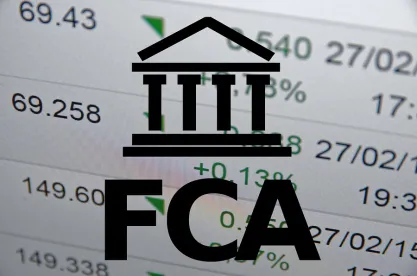On June 16, 2023, the Supreme Court of the United States issued an 8–1 decision in United States ex rel. Polansky v. Executive Health Resources, Inc., pertaining to the government’s authority to dismiss False Claim Act (FCA) cases brought by relators pursuant to the FCA’s qui tam provisions. In affirming the Third Circuit, the Supreme Court handed a victory to the government, in whose name FCA cases are brought, holding the government’s view as to whether an FCA case should be dismissed is “entitled to substantial deference” even if the government declined to intervene in the case before ordered to make an intervention decision. This is good news for FCA defendants, as defendants occasionally appeal to the government for dismissal when a relator pursues a meritless case against the defendant or otherwise pursues an FCA action the government has reason to oppose.
Meanwhile, in a dissenting opinion and concurrence, three justices raised questions about the constitutionality of the FCA’s qui tam provisions, signaling the Supreme Court may review that question in a later case.
8–1 Majority Opinion: Government Dismissal Authority “Not a Close Call”
The first question the Court tackled was whether the government could move to dismiss an FCA action after initially declining to intervene in the case at the outset of litigation and leaving the relator to litigate the case on behalf of the government. Polansky had argued the government should not have been able to move to dismiss his FCA case after initially declining intervention, since the government already had declined to participate and was not an active litigant. The Supreme Court sided with the government, holding that so long as the government intervened in the case at some point — which a court can permit at any time upon a showing of good cause — the government may move to dismiss.
The second question was what standards applied in assessing a government motion to dismiss an FCA case. The Supreme Court held that Federal Rule of Civil Procedure 41(a) — the general rule governing voluntary dismissal of suits by plaintiffs — applies to government dismissals of FCA actions. Rule 41(a) permits dismissals by plaintiffs before a defendant has filed a response to a complaint, or upon a stipulation signed by all parties, or with leave of court on terms the court considers proper. The Supreme Court held Rule 41(a) applies in conjunction with the FCA’s directive that a relator must receive notice of a motion to dismiss and an opportunity for a hearing.
The Supreme Court opined that “in most FCA cases,” “these standards will be readily satisfied” by the government. The Court said it would not “set out a grand theory of what [Rule 41(a)] requires” because “[t]he inquiry is necessarily ‘contextual,’” but that “the Government’s views are entitled to substantial deference” because “[a] qui tam suit . . . is on behalf of and in the name of the Government.” The Court cautioned “a district court should think several times over before denying a motion to dismiss” brought by the government in an FCA case. The Court continued, “If the Government offers a reasonable argument for why the burdens of continued litigation outweigh its benefits, the court should grant the motion. And that is so even if the relator presents a credible assessment to the contrary.”
In Polansky, the Court concluded that “[i]n light of those principles, this case is not a close call.” There, the government had enumerated the significant costs of burdensome discovery imposed on the government and explained why it had come to believe the suit had little chance of success on the merits. The Court held, “The Government gave good grounds for thinking that this suit would not do what all qui tam actions are supposed to do: vindicate the Government’s interests. Absent some extraordinary circumstance, that sort of showing is all that is needed for the Government to prevail. . . .”
Dissent & Concurrence: Constitutionality of Qui Tam Provisions May Be Closer Call
Justice Thomas dissented from the opinion, asserting, “The FCA affords the Government no statutory right to unilaterally dismiss a declined action when it intervenes” later in the case, after its deadline to do so. More importantly, he asserted there may be “serious constitutional questions” with the FCA’s qui tam provisions and suggested the possibility that “Congress cannot authorize a private relator to wield executive authority to represent the United States’ interests in civil litigation.” He said he would have vacated the Third Circuit’s opinion and remanded for consideration of applicable constitutional requirements.
Justice Kavanaugh, joined by Justice Barrett, penned a short concurrence, joining the majority opinion in full but adding he agreed with the dissenting opinion that “there are substantial arguments that the qui tam device is inconsistent with Article II and that private relators may not represent the interests of the United States in litigation.” He added, “In my view, the Court should consider the competing arguments on the Article II issue in an appropriate case.”





 />i
/>i

